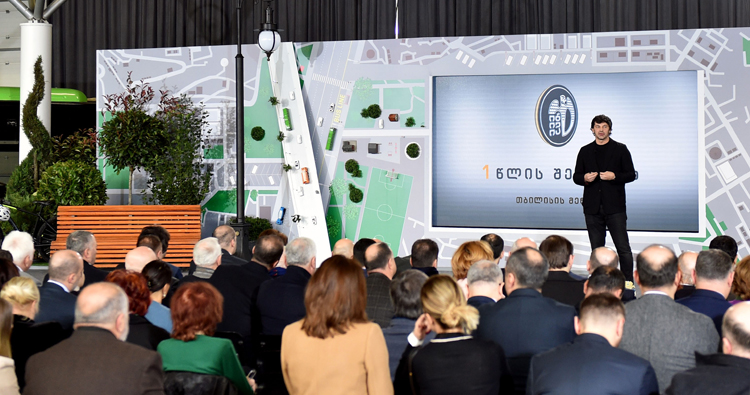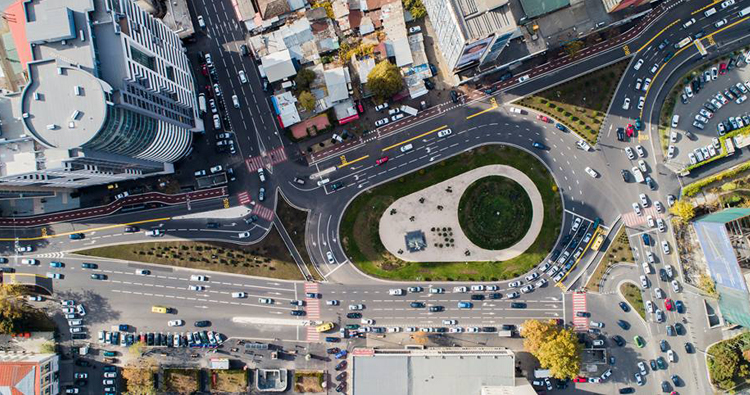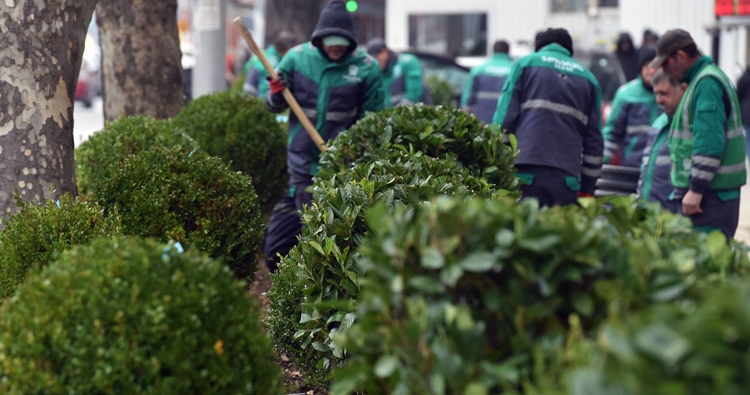Tbilisi mayor sums up results of 2018, shares plans for 2019

Tbilisi mayor Kakha Kaladze summed up the main activities of city hall in 2018 today. Photo: Tbilisi City Hall.

Tbilisi mayor Kakha Kaladze summed up the main activities of city hall in 2018 today and shared plans for the coming years.
The restoration of historic districts of Georgia’s capital of Tbilisi, the development of transport and road infrastructure, new kindergartens and educational programmes, new green areas and sport facilities is what Tbilisi City Hall has been focussed on for the past year.
We have completed work on the general development project. Having a general plan for land use is very important for Tbilisi. The document has been sent to [Tbilisi City Assembly] Sakrebulo and is due to be approved by January 1. There are changes in construction regulations which key point now is greening the city. A special platform ‘Share your ideas for Tbilisi’ has been created and two projects have been implemented within this platform. Urban Housing Systemic Reform was implemented, within which 1,256 projects have been financed which benefited 411 families. More than 14,066,645 GEL was spent on this project”, said Kaladze.
Here are the key activities of Tbilisi City Hall from 2018.
Roads and infrastructure
A number of bridges, tunnels and underground crossings have been renovated in 2018.
Kaladze said that 12 streets in Tbilisi were repaired, on which 135,744,331 GEL was spent in 2018. The road repair works also include the installation of infrastructure for pedestrians, new bus stops, passenger crossings and pavements, all of them adapted for people with disabilities.
While repairing roads all underground communications are also being replaced with new infrastructure,. As Kaladze said underground communications have been upgraded at 169 addresses and 3,401,571 GEL spent on the endeavour.
 Renovated Saakadze Square. Photo: Tbilisi City Hall.
Renovated Saakadze Square. Photo: Tbilisi City Hall.
The existing street lamps have been replaced by European-style street lighting.
Pedestrian refuge islands also have been renovated in Tbilisi and in total 97,000 sq.m. islands which are covered with concrete are now covered with green instead.
Greening Tbilisi, supporting sport
Tbilisi City Hall has been carrying out an active campaign to turn Tbilisi green. Thousands of trees, bushes, flowers, and grassy areas have been planted throughout the city.
As Kaladze said 4,318 addresses have been ‘greened’ in Tbilisi and 1,611,894 GEL was spent on the effort.
A list of about 50 trees and plants have been approved and they will be planted in Tbilisi in different locations.
The territory of the Tbilisi Botanical Garden has increased by 17 ha and now totals 115 ha. In the garden adventurous bicycle tracks and walking paths will be arranged and this will be a gift of the Cartu Foundation - a charity fund established and financed by Georgian tycoon and former Prime Minister Bidzina Ivanishvili - to Tbilisi.
Also, 224 garages have been removed from yards where plants and sport squares have been set up instead.
Overall, sport squares and fitness zones have been installed at 349 addresses, which cost was 7,345,293 GEL.
673 sport and cultural events were held in Tbilisi this year.
 Greening Chavchavadze Avenue in Tbilisi. Photo: Tbilisi City Hall.
Greening Chavchavadze Avenue in Tbilisi. Photo: Tbilisi City Hall.
Renovation of historical districts of Tbilisi
Tbilisi has been undergoing rapid and major transformation to renovate its historical districts. Currently, two major projects are being developed for this reason.
One is the renovation of Orbeliani Square in the city’s centre which is the second stage of the New Tiflis project. The total cost of the project is 70 million GEL and it covers the reconstruction and renovation of 20 buildings of which 13 have the status of cultural heritage. The project is due to be completed in January-February of 2019-2020.
The second project is the renovation of the Lado Gudiashvili Square which costs 50 million GEL. The square is expected to be opened in autumn of 2019.
Tbilisi transport
In 2019 the Tbilisi public bus fleet will be completely renewed, meaning that all existing yellow buses will be replaced with new ones, which will be absolutely environment friendly. 90 new buses have already been purchased which will appeared in Tbilisi in February 2019.
Kaladze said that 200 new, 18-meter-long buses will be added to the fleet from 2020.
Meanwhile, 750 buses will be purchased within the bus replacement project and the number of public buses will be increased by 200 buses.

Tbilisi City Hall will support import of electric cars in Tbilisi. Photo: Tbilisi City Hall.
11 transport corridors will be created in Tbilisi, where bus lanes will be arranged to give free ride to the public transport.
Kaladze also talked about Tbilisi Metro and said that an above-ground metro system will be developed in Tbilisi. At the first stage, the ground-based metro will connect the Samgori metro station with the Lilo Market and Tbilisi Airport. Construction work will begin at the end of 2019. The modernisation of the Samgori metro station will be carried out and it will be connected with the new metro line as well. In total 7 new metro stations will be added to Tbilisi Metro within the project.
Renovation of 22 metro stations are planned. In 2018-2021 a total of 12 new trains will be added to the Tbilisi Metro.
Kaladze summed up the reform on taxis and said that as of today there are about 20,000 registered, licensed taxis in Tbilisi. At the second stage of the reform the taxis should undergo vehicle inspections and once they will have their license and be inspected the drivers will receive vouchers from the state to paint the cars white. Also, the drivers will be able to place an advertisement on their taxis and all income will be theirs. The taxi drivers will be exempted from the Income Tax.
Development of the Tbilisi economy
Kaladze said that launching the Tbilisi market project was very important for developing the Tbilisi economy. The aim of the project is to promote local creativity and business development in the arts. Once a week Tbilisi hosts the market were registered entrepreneurs can sell their products.
The second project that is important for the Tbilisi economy is Radio City, which will be implemented in the Mukhiani district of Tbilisi said Kaladze.
Gldani, Mukhiani and Temka districts will have cafes, restaurants and port centres where all generations will be able to go for recreational purposes. The investment cost of the project is 50 million GEL and 200 jobs will be created within it”, said Kaladze.
Kaladze talked about the development of the night-time economy, which is a category of economic activity that occurs after 5 p.m. and includes dining, nightlife, arts, music, theatre, entertainment, festivals, events, activities and tourist attractions that are open at night.
Kaladze said that “an important step” was taken when night buses were introduced in the city.
Tbilisi budget in 2019
The budget of Tbilisi City Hall will be 921 million, but Kaladze said that it might further increase and reach one billion GEL.
35% of the budget or 327 million GEL will be allocated for health and social programmes. 455 million GEL will be determined for infrastructure, 88 million – for ecology, 26 million – for greening the city.
 Tweet
Tweet  Share
Share